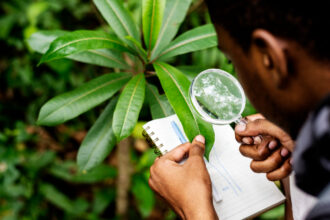Climate change is not just about rising temperatures or melting ice caps; it is reshaping ecosystems and forcing species to adapt in unprecedented ways. A recent study has highlighted how animals and plants are being redistributed across the globe, almost as if the natural world is being shuffled like a deck of cards. These changes have far-reaching implications for biodiversity, conservation efforts, and the delicate balance of ecosystems.
Shifts in Species Distribution
Researchers have observed significant shifts in the habitats of various species due to changing climate conditions. Warmer temperatures are pushing some animals to higher altitudes or latitudes, while others are struggling to survive in their traditional habitats. These migrations can lead to unexpected interactions between species, potentially disrupting food chains and ecosystem stability.
In addition to physical relocation, many species are adjusting their life cycles to cope with new climatic realities. Breeding seasons, migration timings, and flowering periods are all being altered, which can have cascading effects on species that depend on one another. The complex web of life is being subtly rewoven as the climate shifts.
Threats to Biodiversity
The reshuffling of species poses significant threats to global biodiversity. When certain animals or plants move into new territories, they may outcompete native species for resources, leading to declines or local extinctions. On the other hand, species that cannot adapt quickly enough face the risk of disappearing entirely.
Conservationists are particularly concerned about the impacts on vulnerable ecosystems such as coral reefs, rainforests, and polar regions. These areas host a high number of endemic species that are uniquely adapted to specific conditions. As climate change accelerates, these habitats may be altered beyond recognition, threatening the survival of countless organisms.
Human Impact and Ecological Consequences
Humans are both contributors to and victims of these ecological changes. As species migrate, agricultural patterns, fisheries, and water resources may be affected, leading to economic and social challenges. For instance, shifts in the distribution of pollinators could impact crop yields, while the spread of certain pests and diseases may pose new public health risks.
Additionally, the loss or relocation of species can affect ecosystem services that humans rely on, such as water purification, carbon sequestration, and soil fertility. The reshuffling of nature due to climate change is not just an environmental issue; it has tangible consequences for societies worldwide.
Adaptive Strategies for Conservation
In response to these challenges, conservationists and scientists are developing adaptive strategies to protect biodiversity. Creating wildlife corridors, protecting critical habitats, and implementing assisted migration programs are some of the measures being explored. These efforts aim to give species a better chance to survive as their environments change.
Moreover, integrating climate models with ecological data helps predict which species are at greatest risk and where interventions are most needed. Policymakers can use this information to prioritize conservation funding and implement regulations that support sustainable land and resource management.
The Role of Policy and Global Cooperation
Addressing the impacts of climate change on wildlife requires coordinated action at both national and international levels. Governments, NGOs, and research institutions must collaborate to develop policies that mitigate climate impacts and support adaptive management.
International agreements such as the Convention on Biological Diversity and the Paris Climate Accord play critical roles in setting targets and fostering cooperation. Effective policy frameworks can help align conservation efforts with climate action, ensuring that ecosystems remain resilient in the face of ongoing environmental changes.
Looking Ahead: Research and Innovation
Ongoing research is essential to understand the full scope of climate change impacts on species distribution. Technological innovations, such as satellite tracking and genetic monitoring, provide valuable tools for observing and predicting ecological shifts.
Public engagement and citizen science initiatives also contribute to data collection and awareness. By involving communities in monitoring local wildlife, researchers can gain real-time insights while fostering a culture of environmental stewardship.
Conclusion
Climate change is reshaping the natural world in profound and unpredictable ways. As species are shuffled across ecosystems, the challenges for biodiversity, conservation, and human societies continue to grow. By understanding these patterns and implementing adaptive strategies, we can help safeguard the delicate balance of life on Earth. Proactive action, global cooperation, and ongoing research are key to ensuring that both nature and humanity can thrive in an era of rapid environmental change.









